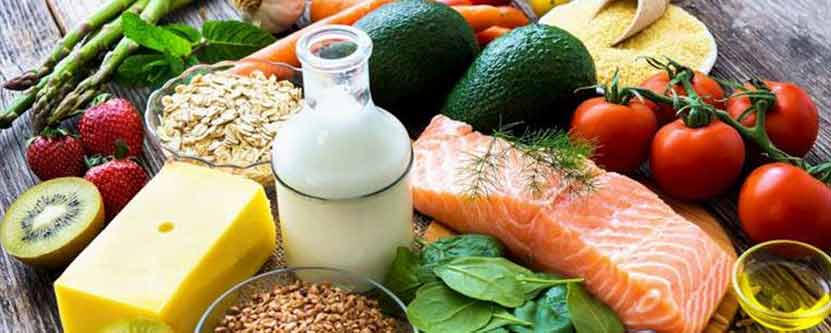Are you convalescing from typhoid? Do you feel exhausted and drained out these days? Do you want to regain your lost energy and add spark to your life? If you nodded along in agreement, you need to follow a well-planned, nutritious diet post typhoid. Following the right diet plan will not only help you in regaining energy but also prevent the recurrence of typhoid.
[the_ad id=”6214″]
Why Should You Follow a Post-Typhoid Diet Plan?
Typhoid is a bacterial infection characterized by intestinal disorder, fever, and rash. The symptoms including headache, constipation, pain in abdomen, loss of appetite, extreme fatigue, and muscle pain leave you weak and lagging in energy once you get rid of typhoid. The infection adversely affects your immunity and digestive system. So, you need to follow a post-typhoid diet plan to restore your immunity, digestive power, and balance the levels of electrolytes and fluids in your body. Read on to learn the proper diet tips to follow post-typhoid.
7 Best Post Typhoid Diet Tips To Follow:
- Eat Meals At Short Intervals: Typhoid drains all your energy and affects your appetite adversely. Even after recovering from typhoid, you may experience low appetite for a few weeks.However, you need to eat food as your body needs energy. So, plan small meals and eat these small meals at short intervals many times a day. You can eat three to five small meals a day.Post typhoid, you may not be able to eat big meals at once. Make sure you include nutritious food in your small meals and have them more often. This will help increase your calorie intake, nourish your body, and restore the lost energy soon.
- Include Easily Digestible Foods: Your digestion power is bound to get affected adversely due to typhoid, and it may take some time for your digestion and intestinal system to get back to normal post typhoid.So, after recovering from typhoid, make sure your diet comprises easily digestible foods. Include well-cooked, soft, yet nutritious foods in your post-typhoid diet.Also, include healthy fluids, such as vegetable soups, in your diet.
- Have Protein-Rich Diet: Your body’s protein needs increase significantly post typhoid, as typhoid fever and low food intake tend to affect your body adversely.So, you need to include foods rich in proteins following typhoid. Eat fruits, such as dates, jack fruit, dried apricot, avocados, and prunes, curd rice, yogurt, fresh buttermilk, dry fruits, such as almonds, and other foods that have high amounts of proteins.Consuming protein rich foods helps you quickly recover from weakness that typhoid had left you with.
- Drink Healthy Fluids: Fluid loss from your body is obvious due to typhoid fever. Vomiting and sweating drain a lot of fluid and electrolytes out of your body during typhoid.So, post typhoid, you need to recoup all electrolyte and fluid loses by including healthy fluids in your diet. Drink plenty of water to keep your body hydrated. Also, drink healthy fluids, such as coconut water, fresh fruit juices, vegetable soups, lime juice, sugarcane juice, and glucose water, regularly after recovering from typhoid.Have these healthy fluids in adequate quantities at short intervals.
- Add Vitamin A, B, And C: Adding plenty of vitamin A, vitamin B, and vitamin C to you regular diet post typhoid is quintessential. Including these crucial vitamins to your diet helps you recoup the loss of vitality that you suffered due to typhoid. So, eat cooked carrots, cooked sweet potato for vitamin A. Go for citrus fruit juices, such as juices of orange, grapefruit, and other vitamin C rich fruits to fulfill your body’s vitamin C needs. Eat cooked vitamin B rich vegetables, soya beans, and other foods
- Do Not Gobble Spicy, Fried Foods: As the symptoms of typhoid subside, while following a healthy diet, you also need to avoid your temptation for eating junk food. Completely avoid eating spicy foods, junk and fried foods, and other unhealthy oily and fatty foods post typhoid at least for two complete weeks. Eating unhealthy foods can hamper your digestion process. Add simple fatty foods, such as butter and cream, and spices to your diet gradually.
- Avoid Insoluble Fiber: Your digestive tract might suffer an injury or damage due to typhoid. So, it is best to avoid eating foods containing insoluble fiber post typhoid. Avoid eating foods, such as seeds and skin of fruits and vegetables. Also, foods, such as fermented foods, raw vegetables, and semi-cooked pulses, tend to cause dietary disturbances and tax your compromised liver post typhoid. So, avoid eating them after typhoid. Typhoid can transform itself into a life-threatening illness if neglected. Also, untreated typhoid may lead to severe long-term effects.
Source:

